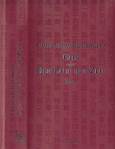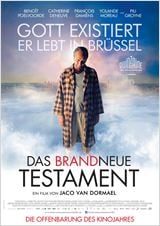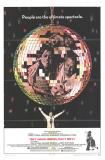BANKSPEAK - The Language of World Bank Reports: Die Inflation des "und" zur Koppelung von Begriffen ohne erkennbaren Zusammenhang
Eine unglaublich spannende Analyse der Sprache der Weltbank. Erstaunlich, was quantitative linguistic analysis ans Licht bringen kann. (Hätte ich nicht gedacht):
New Left Review 92, March-April 2015
Franco Moretti & Dominique pestre
BANKSPEAK
The Language of World Bank Reports
Das am häufigsten vorkommendes Wort überhaupt ist nicht, wie sonst in der englischen Sprache, das "the". Es ist das "and", das eine stetig wachsende Zahl von abstrakten Begriffen auch dann zu Aufzählungen koppeln muss, wenn die Glieder keinen erkennbaren Zusammenhang haben.
"Bankspeak", so das Fazit der Autoren, ist eine Sprache. in der alle ökonomischen und politischen Prozesse der Welt, an denen die Weltbank Anteil hat, vor allem eins sind: alternativlos. (Das Verblassen der physischen Welt, Süddeutsche Zeitung pay)

How the language you speak changes your view of the world - via Mrs BBH
New Left Review 92, March-April 2015
Franco Moretti & Dominique pestre
BANKSPEAK
The Language of World Bank Reports
- What can quantitative linguistic analysis tell us about the operations and outlook of the international financial institutions? At first glance, the words most frequently used in the World Bank’s Annual Reports give an impression of unbroken continuity. [1] Seven are near the top at any given time: three nouns—bank, loan/s,development—and four adjectives: fiscal, economic, financial, private. This septet is joined by a handful of other nouns: ibrd, countries, investment/s, interest, programme/s, project/s, assistance, and—though initially less frequent—lending, growth, cost, debt, trade, prices. There is also a second, more colourless set of adjectives—other, new, such, net, first, more, general—plus agricultural, partly replaced from the 1990s by rural. [2] The message is clear: the World Bank lends money for the purpose of stimulating development, notably in the rural South, and is therefore involved with loans, investments and debts. It works through programmes and projects, and considers trade a key resource for economic growth. Being concerned with development, the Bank deals with all sorts of economic, financial and fiscal matters, and is in touch with private business. All quite simple, and perfectly straightforward.
And yet, behind this façade of uniformity, a major metamorphosis has taken place. Here is how the Bank’s Report described the world in 1958:
The Congo’s present transport system is geared mainly to the export trade, and is based on river navigation and on railroads which lead from river ports into regions producing minerals and agricultural commodities. Most of the roads radiate short distances from cities, providing farm-to-market communications. In recent years road traffic has increased rapidly with the growth of the internal market and the improvement of farming methods.
And here is the Report from half a century later, in 2008:
Countries in the region are emerging as key players on issues of global concern, and the Bank’s role has been to support their efforts by partnering through innovative platforms for an enlightened dialogue and action on the ground, as well as by supporting South–South cooperation.
It’s almost another language, in both semantics and grammar. The key discontinuity, as we shall see, falls mostly between the first three decades and the last two, the turn of the 1990s, when the style of the Reports becomes much more codified, self-referential and detached from everyday language. It is this Bankspeak that will be the protagonist of the pages that follow.... (Open as a PDF/ Save a PDF file)
Das am häufigsten vorkommendes Wort überhaupt ist nicht, wie sonst in der englischen Sprache, das "the". Es ist das "and", das eine stetig wachsende Zahl von abstrakten Begriffen auch dann zu Aufzählungen koppeln muss, wenn die Glieder keinen erkennbaren Zusammenhang haben.
"Bankspeak", so das Fazit der Autoren, ist eine Sprache. in der alle ökonomischen und politischen Prozesse der Welt, an denen die Weltbank Anteil hat, vor allem eins sind: alternativlos. (Das Verblassen der physischen Welt, Süddeutsche Zeitung pay)

How the language you speak changes your view of the world - via Mrs BBH
gebattmer - 2015/04/29 18:57



























































Trackback URL:
https://gebattmer.twoday.net/stories/1022425197/modTrackback